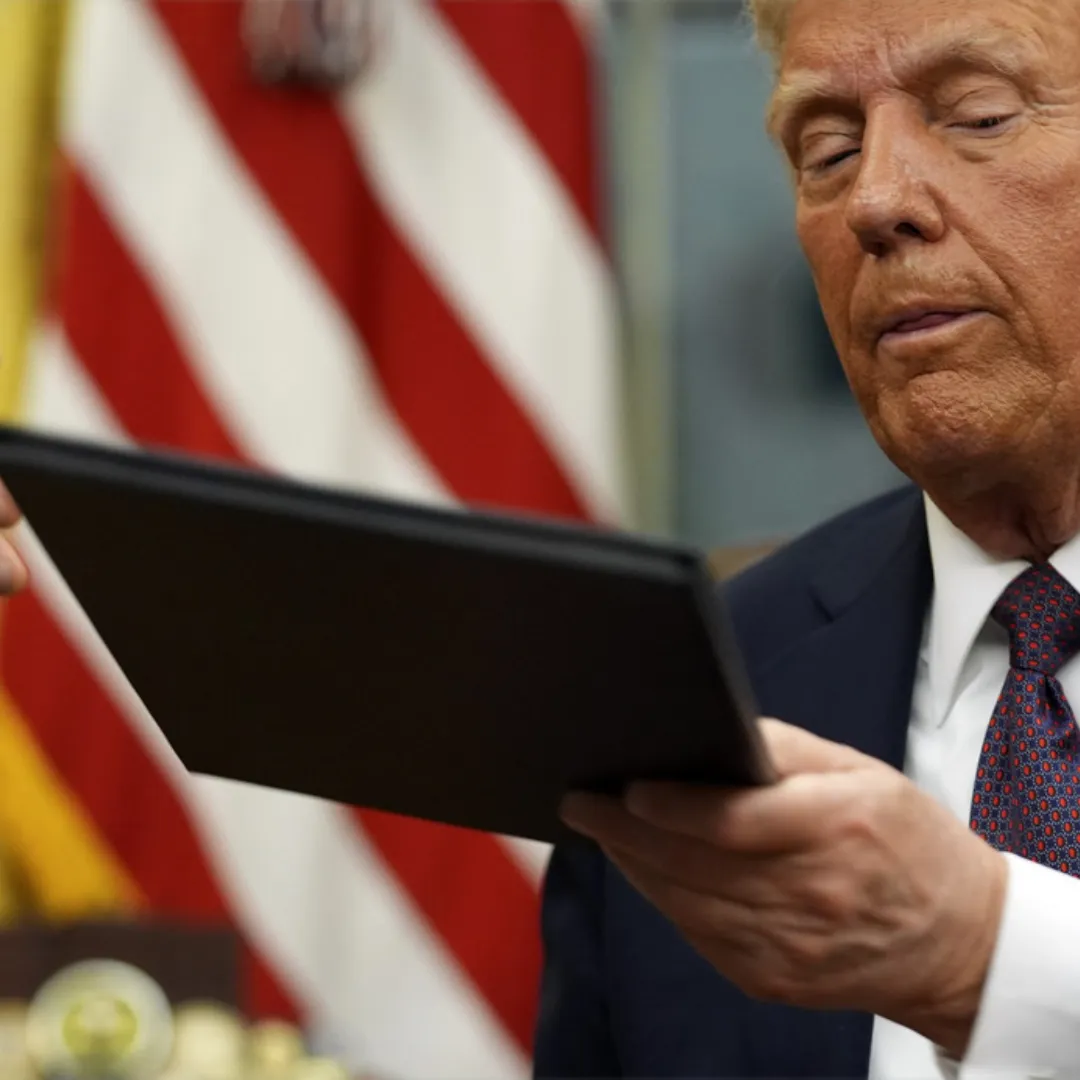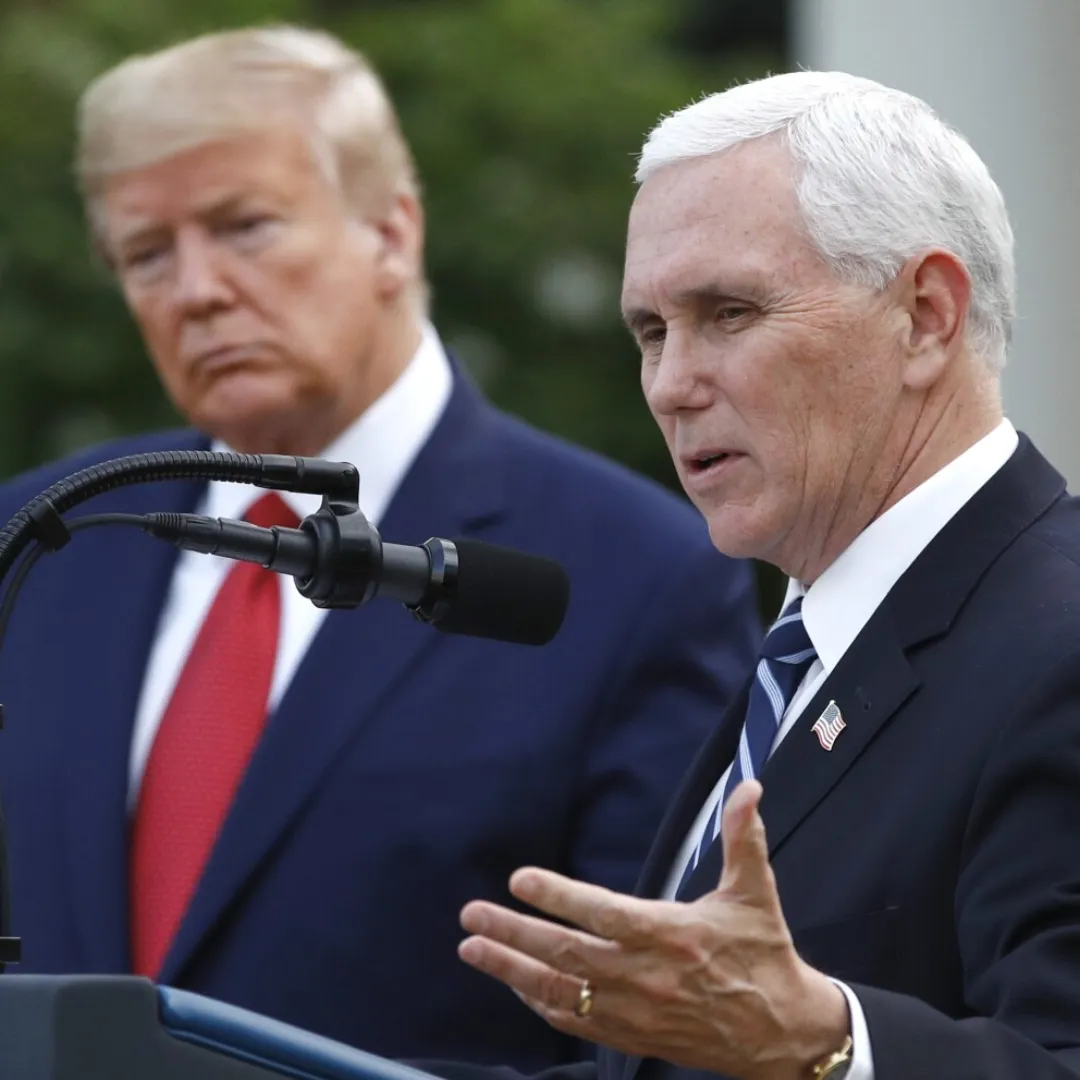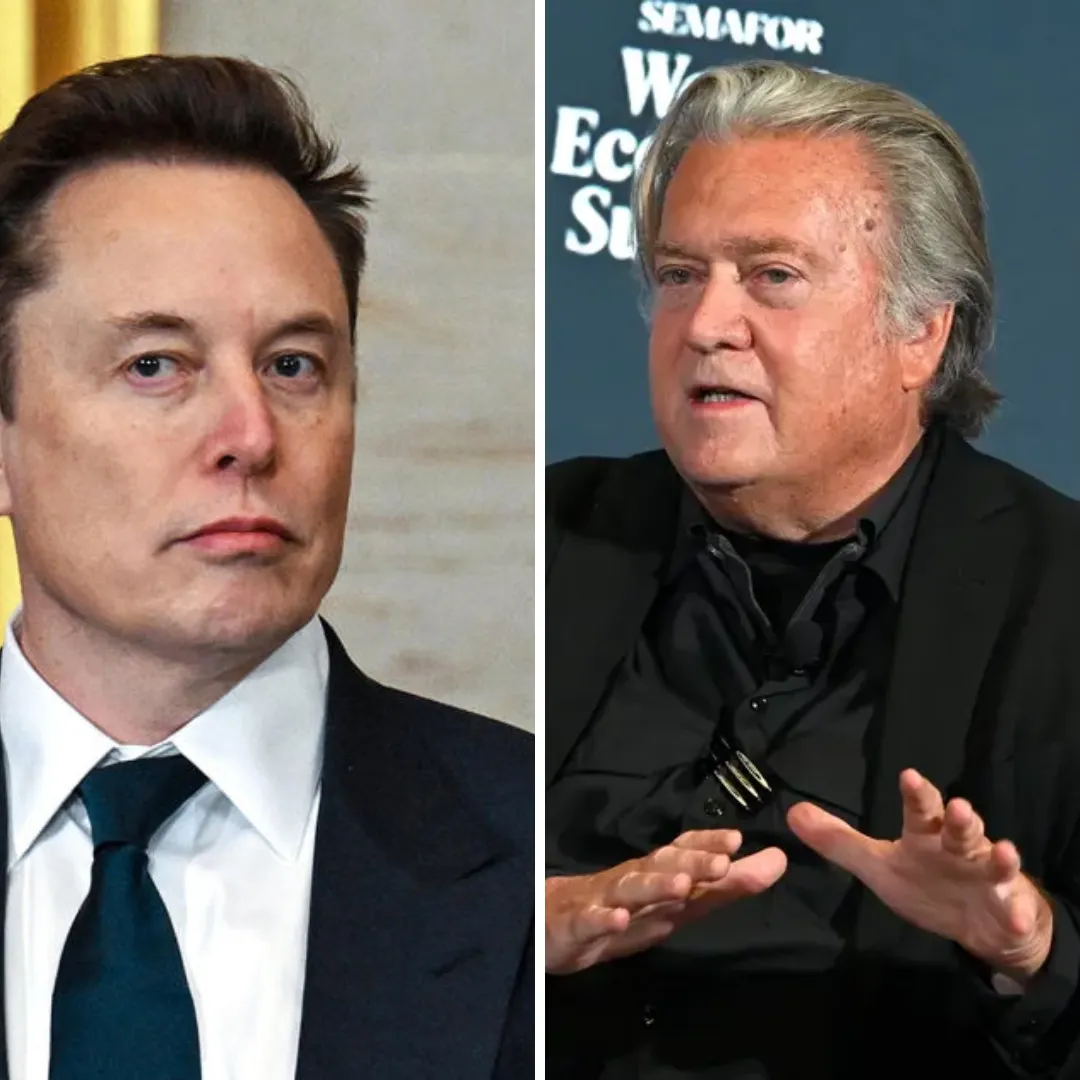
President Donald Trump on Tuesday briefly expressed support for a proposal that would offer financial bonuses to mothers after childbirth. The idea is part of a broader set of discussions inside the White House aimed at reversing the declining birth rate in the United States.
When asked by reporters if he supported the idea of a baby bonus for mothers who give birth, Trump responded positively.
“Sounds like a good idea to me,” the president said before moving on to the next question during a press conference.
The comment came following recent media reports that the Trump administration has been exploring policies designed to encourage higher birth rates. According to sources familiar with the internal discussions, the baby bonus proposal is one of several under review.
The bonus could amount to as much as $5,000 per child, although no official policy or plan has been confirmed by the administration at this time.
The New York Times first reported that the baby bonus idea had been discussed in recent White House meetings. The report said that several experts and advocacy groups had pitched different approaches to increase family formation and childbearing in the United States.
These meetings reportedly included conservative policy advisors, pro-family advocates, and demographic researchers.
Another proposal mentioned in the Times report included expanded funding for educational campaigns about women's reproductive health, specifically focusing on teaching women how to track their menstrual cycles and better understand ovulation.
The idea is intended to help women who wish to conceive be more informed about their fertility.

While these proposals are still in the early stages and have not been formally presented as policy, they highlight a growing concern within the Trump administration about the nation’s declining birth rate.
According to data from the Centers for Disease Control and Prevention, the U.S. birth rate has been steadily falling for years and is now below the level needed to replace the population without immigration.
Trump has previously touched on population issues in the context of economic growth and national strength. Though he has not made fertility policy a central focus during his presidency, the renewed interest in baby bonuses and related incentives suggests that the administration may be looking for new ways to address what some view as a long-term demographic challenge.
The concept of a baby bonus is not new. Other countries, particularly in Europe and Asia, have experimented with similar policies in response to declining birth rates.
Nations like Hungary and Russia have offered cash payments, tax incentives, or subsidized housing to families that have more children. In some cases, these policies have resulted in modest increases in fertility, although experts disagree on their long-term effectiveness.
In the United States, the idea has been floated from time to time but has never gained significant traction at the federal level. Some states have considered offering incentives to families, but most support for families comes in the form of tax credits or public programs like child care subsidies or paid family leave.
The potential $5,000 baby bonus being discussed by Trump aides would represent a significant new investment in family policy, particularly if it were offered universally or with minimal restrictions.
However, there is no word yet on how such a program would be funded or whether Congress would be involved in drafting legislation to authorize the payments.
The White House has not released any official proposal or timeline for action. When pressed on the issue again later Tuesday, a senior administration official said that the baby bonus idea was “just one of several concepts under review” and that the president had not made a formal decision.
Still, Trump’s public support, even in brief, could signal openness to developing the idea further.
“President Trump has always stood up for American families,” said one senior advisor. “He believes we should be supporting moms and dads who want to grow their families. The president understands that family is the foundation of our country.”
Reactions to the president’s comments have been mixed. Some pro-family groups applauded the idea, saying it could help relieve financial pressure on new parents and encourage more people to consider having children.
“This is exactly the kind of leadership we need,” said Angela Crawford, director of the Family Futures Alliance. “Too many couples are delaying or avoiding having children because they can’t afford it. A baby bonus could give them the confidence and support they need.”
Others, however, raised questions about the policy’s details and long-term impact. Critics noted that one-time payments may not address the broader economic and social factors contributing to the declining birth rate, such as high housing costs, student debt, and lack of affordable child care.
“A check for $5,000 is helpful, but it doesn’t solve the day-to-day challenges parents face,” said Dr. Howard Bennett, a demographer at the Population Research Center. “Raising children is a long-term commitment. Families need stability, not just short-term incentives.”

There is also concern that the administration’s approach may lack comprehensive planning. Some health and policy experts have voiced skepticism about relying on ovulation education as a fertility solution, suggesting that broader access to health care and family support services would be more effective.
“Understanding ovulation is useful, but it’s only one piece of the puzzle,” said Dr. Lila Greene, a reproductive health specialist. “If we really want to improve fertility outcomes, we need to look at the whole system—access to care, parental leave, child care, and more.”
The idea of using financial incentives to influence population growth has a long history, but it also comes with political and ethical debates. Some critics argue that such policies risk turning childbirth into a transaction, or that they could be misused to target certain demographics.
“There’s a fine line between supporting families and encouraging certain people to have children for the wrong reasons,” said Alicia Raymond, a policy analyst. “Any program like this needs to be carefully designed to avoid unintended consequences.”
Despite the concerns, the baby bonus idea is gaining attention among conservative policymakers, some of whom see it as part of a larger vision of family-centered policy. In recent months, several Republican lawmakers have introduced or expressed interest in proposals aimed at strengthening families, including expanding the child tax credit or offering paid family leave.
With the 2026 midterms approaching and the 2028 presidential race beginning to take shape, the Trump administration may see family policy as an important area to energize its base and appeal to younger voters. Policies that support parents and children have broad appeal across party lines, though the details often become contentious.
White House insiders say that while the baby bonus idea is still in the discussion phase, it has attracted serious interest within the administration. Advisors are reportedly studying models from other countries and consulting with economists about potential impacts.
At the same time, political analysts say Trump’s willingness to talk about the issue reflects his instincts as a populist leader who responds to everyday concerns.
“He sees a headline about families struggling to make ends meet, and he wants to respond,” said political strategist James Flores. “It fits with his brand—direct, bold, and family-first.”
For now, the White House says more information will be shared in the coming weeks as internal reviews continue. It remains unclear whether the administration will formally endorse the baby bonus proposal, or if it will evolve into a different kind of family support policy.
What is clear is that the issue of declining birth rates is now on the agenda in Washington. And with President Trump’s public support—even if brief—the conversation has already moved from speculation to serious consideration.
As one aide put it, “This isn’t just about boosting numbers. It’s about the future of the American family.”





